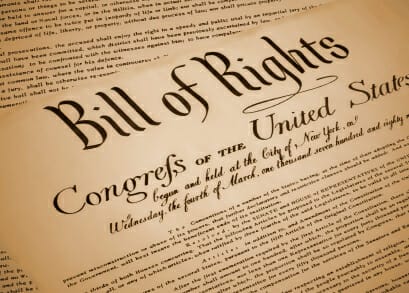Should I Talk to Authorities?
Many clients call us wanting to make a statement to their command because they think that just by telling their side of the story, it’s all going to go away. The instinct that most people have is to tell their side of the story, thinking that their story will resolve the issue and make things go away or go more easily. From a criminal defense perspective, making a statement is usually extremely detrimental. You have to be very careful and strategic about when and how you make a statement because no matter what you say, there are going to be people on the other side who are trying to pick it apart and use it against you.
In most circumstances, the best plan is to make no statement initially; assert your right to remain silent. It can’t be used against you; it’s a constitutional protection. Once you are confronted with an actual criminal proceeding, you can make a decision to provide a statement through the advice of your attorney. At this point, you’ll have the benefit of being able to review all of the evidence against you and arguments of the prosecution.
Is It True That If I Stay Silent Authorities Will Get What They Want With A Subpoena Anyway?
People call often to ask about a subpoena. Are they going to be able to get records or statements from you, even if you are not participating or cooperating? You have a right to remain silent and you absolutely should take that right very seriously. You should work with an attorney to make the decision as to whether and when you make a statement or if you will continue to remain silent. The idea of a subpoena being used to get information from an accused person rarely occurs. Subpoenas can be used for all sorts of different purposes, to include obtaining certain records, but prosecutors also have the ability to obtain search authorizations or warrants to search and seize property of an accused person.
Can I Still Be Questioned In My Case If I Have Invoked My Right To Remain Silent?
The idea of asserting your right to remain silent is a great idea. Until you talk to an attorney, you should not be making a statement that could be used against you. The Supreme Court has ruled that if you assert your right to remain silent and you are released from police custody, they can come back to you. They may even set up a friend of yours to come and talk to you about it. Just because you assert your rights at one point, it doesn’t mean they can’t re-approach you to try to get a statement from you again in the future, unless you assert your right to remain silent, actually hire an attorney, and have that attorney contact investigators and let them know that you are represented.






